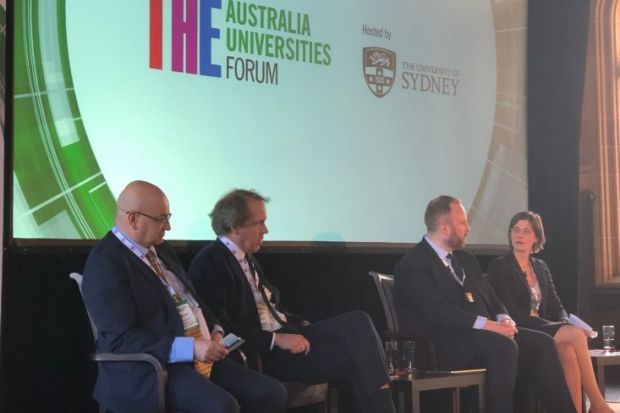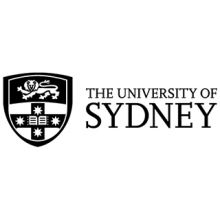Big city university campuses are not good places for businesses to collaborate because “you can’t park”, a Sydney forum has heard.
Australian industry engagement experts have outlined some of the practical and cultural impediments hampering universities and their students from working more effectively with the commercial world.
Cooperative Research Centres Association chief executive Tony Peacock said that, while campuses might have 300 buildings, most undergraduates only ever used three of them. “So they don’t bother with signs that tell you where things are,” he told the Times Higher Education Australia Universities Forum at the University of Sydney.
“Suddenly we’re inviting businesses to come on to campuses and talk to us. Have you ever tried to find a friggin’ place at a university? You see that big concrete block? Paint a sign on it, for God’s sake!”
Dr Peacock said the University of Sydney’s relatively small agricultural campus at Camden, on Sydney’s rural fringe, was arguably a better place to work with industry than the main campus near the city centre.
“Sydney’s a lot harder – it’s harder to collaborate here because you can’t park,” he said.
Dr Peacock continued: “The regional universities have this wonderful opportunity [because] it’s much easier to physically collaborate, in some ways. Some of the universities that are so good at this in Britain, and particularly the US, are very small institutions. [Being] big is not a huge advantage. It complicates it.”
Luke Sheehy, executive director of the Australian Technology Network of Universities, said non-metropolitan universities embraced that opportunity. “Regional university towns in Australia – Geelong, Wollongong and Newcastle in particular – are transformed by their universities,” he told the forum.
“People used to say that [automotive giant] Ford drove Geelong. Now Deakin [University] is fundamental to the social and economic life of that city.”
Carolin Plewa, director of the University of Adelaide’s Entrepreneurship, Commercialisation and Innovation Centre, said people with doctorates were valued by industry in her native Germany. But some Australian recruiters automatically rejected them. “If someone’s got a PhD, they go straight off the pile,” she said.
Professor Plewa said she had recently met a woman who had just completed her PhD. “I said, ‘Did you celebrate at work?’ She said, ‘Oh no, I wouldn’t tell anyone.’
“We need to change the understanding of the capabilities a PhD brings,” Professor Plewa told the forum. “It’s something I’m still trying to get my head around, coming from a very different culture.”
The University of Sydney’s deputy vice-chancellor for research, Duncan Ivison, said PhDs had long been undervalued by Australian industry “and even government, in some cases. But that’s starting to change.
“We’re seeing a lot more industry-funded PhDs. We’re seeing demand for PhD internships grow. That’s really encouraging.”
Dr Peacock noted that one of the original cohort of Australian doctoral graduates, former UNSW Sydney vice-chancellor Rupert Myers, had died just last year. “There were no PhDs granted in Australia until 1948,” he said.
“It’s a very young degree, and we should never think of it as set in concrete.”
Register to continue
Why register?
- Registration is free and only takes a moment
- Once registered, you can read 3 articles a month
- Sign up for our newsletter
Subscribe
Or subscribe for unlimited access to:
- Unlimited access to news, views, insights & reviews
- Digital editions
- Digital access to THE’s university and college rankings analysis
Already registered or a current subscriber? Login













